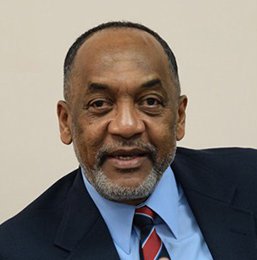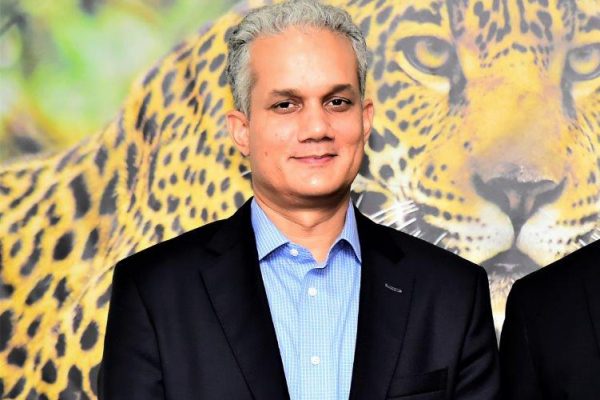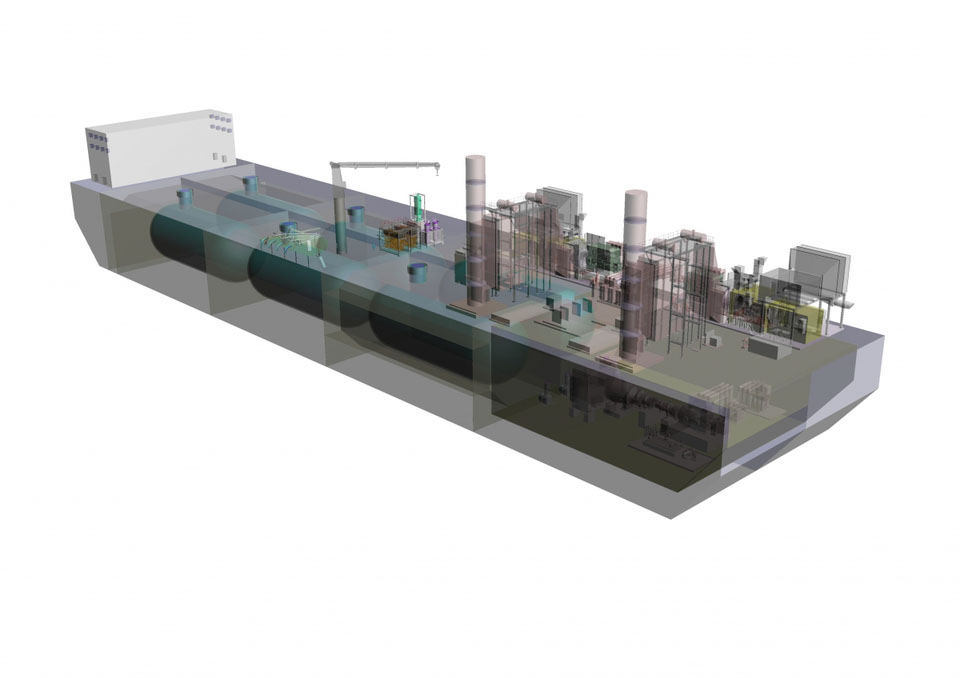A Floating Liquefied Natural Gas (FLNG) facility defeats local content efforts when compared to bringing pipelines to shore, according to former government Petroleum Advisor Jan Mangal, who favours the latter option for Guyana.
Mangal reasons that having associated gases processed offshore at a FLNG facility and then transferred inland would not help this country create jobs and would not be in this country’s best interest.
Instead, he advises that if Guyana’s citizenry decides that it wants to use some of the natural gas offshore for domestic use, then it should be brought inland through pipes to build local content and stimulate other industries.

“If the people of Guyana decide to use the gas commercially…then it should be brought to shore. Countries benefit from their gas by bringing it to shore, to provide power and stimulate other industries. Offshore LNG or other offshore sales will not have a similar benefit,” he told the Sunday Stabroek.
He added that Guyana does not have the job skills and portfolios required for the operation of an FLNG plant nor will it have them before it is built. In addition, only a limited number of persons will be working on the offshore facility. He believes that some foreign

companies might support the FLNG option because of the very fact that it does not allow for much local content.
Mangal said as the debate continues on if to leave the associated gas from offshore oil in the ground because of global warming concerns or send it to shore to be transformed into energy for use, one thing must remain clear – the flaring of it “as an almighty lighthouse in the Atlantic Ocean” must be stopped.
For former Environmental Protection Agency Head Dr. Vincent Adams, the decision on which option is better for this country will not be known until detailed studies are completed and the “pros and cons in a number of areas such as economics, job creation, environment…” are compared and the nation decides.
But even then, he said that the final decision will be weighted on which option policymakers themselves feel are in their constituencies’ favor.
“It is not a matter of better off doing anything. You might run your numbers on modelling but if your politics is heavier, then what? I am convinced it is politics that they put it at Wales [West Bank Demerara] and there is nothing wrong with that. Wales, everyone knows the situation at Wales …there is nothing wrong with them saying that but they have to say how they will do it. Everybody seems to be zeroing in on the economics” but that is not all, he said.
“Nobody in the world can say right now which is better unless you see the data to compare the alternatives. Everybody, because of their own priority, will say what is [weighted] heavier [in their favour]. To an engineer it might be a better decision to use but to a politician it is more valuable to employ their constituency,’’ he added, while emphasising the importance of non-partisan and professional studies and expert work plans.
Masterplan
An oil and gas masterplan for Guyana done by the Government of Japan had concluded in 2019 that a gas to power solution based on the country’s petroleum operations is economically viable but it leaned heavily in favour of an offshore facility rather than an onshore plant.
The plan, completed in 2019 and given to the David Granger APNU+AFC administration, comprised analyses for both onshore and floating gas-to-power plants.
While it said that it did not find a significant difference between the two costs for the LNG (Liquefied Natural Gas) processes, the study leans heavily in support of an offshore facility and focused on the offshore set up more.
Mangal said that he was the advisor to Granger when the Japanese had approached to conduct the study. He said that he had met with them “a few times” and they were having difficulty gathering data here. He felt that most of that data should have come from ExxonMobil.
But a study commissioned and paid for by the Government of Japan, Mangal believes, would have been partial to Japanese interests. “I believe the main objective of such studies is to create work for Japanese companies, and not to do what is best for Guyana in the long term,” he opined.
He said that key to all decisions in every sector must be that Guyana is the major beneficiary and Guyanese can see significant tangible benefits in the long term.
Adams agrees that decisions made must be in this country’s best interest and added that its people are the ones that should say what is best for them.
“It is not about employment alone. You have to figure what criteria government is setting. Is it just economical, is it employment, and is it environment? Those are the strategies not known currently. The one thing lacking in Guyana always seem to be proper strategic planning,” he said.
“When you have options, you have to [have] the detailed underpinning studies so you compare and contrast. I see nothing absolutely nothing wrong if government says that Wales was chosen because of an economic perspective. It is their constituency; you have the people that lost their jobs and you are planning to create an industrial zone. However, what must come with all of that is that they will undertake all, and I mean all, the studies necessary and then show it supports that choice,” he added.
Adams said that the plan for executing the project also has to be sound as government would have to justify that there will be minimal environmental hazards and no compromise to the safety of its people.
Government is yet to detail all of the studies it intends to carry out for a project it anticipates will be completed by 2024. While a team to look at the gas to shore project was formed, much has not been publicly said on their duties or terms of reference.




